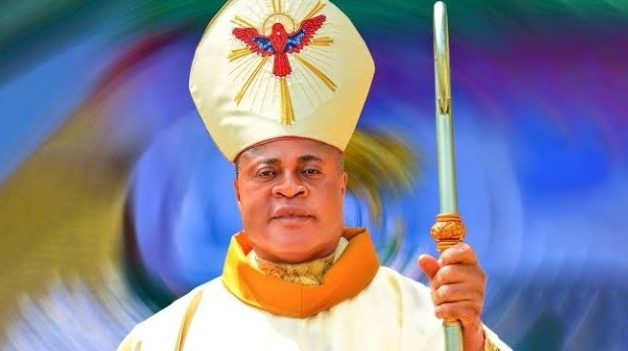WEDNESDAY April 23, 2025 |
By thenewsdesk.ng
Following the passing of Pope Francis on Monday, the Catholic Church has entered a critical phase of transition as preparations begin for the election of a new Pontiff. Within 15 to 20 days, the College of Cardinals will convene at a Conclave in Vatican City to elect a successor—a deeply spiritual and historic rite that has shaped the leadership of the Church for centuries, FirstNEWS reports.
Among those eligible to vote is Nigeria’s Cardinal Peter Ebere Okpaleke, who, at 62, stands as the country’s only cardinal within the voting age bracket. The Catholic Broadcast Commission of Nigeria confirmed his eligibility on Tuesday, noting that the Church excludes any cardinal above 80 years from participating in papal elections.
Nigeria currently has four cardinals: Francis Arinze (92), Anthony Okogie (88), John Onaiyekan (81), and Peter Okpaleke (62). With the others having crossed the age limit, Cardinal Okpaleke alone qualifies to vote—and could, in theory, be elected Pope.
The Making of a Cardinal
Born on March 1, 1963, in Amesi, Anambra State, Okpaleke entered the Bigard Memorial Seminary in 1983, where he studied philosophy and theology. He was ordained a priest in 1990 and later earned a degree in Canon Law in Rome. Though his journey in the clergy has largely been low-profile, it has not been without controversy.
In 2012, he was appointed Bishop of Ahiara in Imo State. However, his installation was fiercely resisted by local clergy and laity who insisted on having a bishop from their Mbaise ethnic group. The standoff led to a rare intervention by Pope Francis, who gave the protesting priests an ultimatum. Eventually, Okpaleke resigned from the post in 2018.
His resilience paid off two years later when Pope Francis appointed him Bishop of Ekwulobia in his home state, Anambra. In 2022, he was elevated to the rank of cardinal—an honour that now places him at the centre of one of the Church’s most sacred and consequential decisions.
Celibacy and the Papal Path
As is customary in the Roman Catholic Church, priests—including cardinals—take vows of celibacy. This rule, aimed at promoting undivided devotion to God and the Church, means that Catholic priests do not marry or bear children. While not all Catholic rites require celibacy, it is a longstanding tradition in the Latin Rite, to which Cardinal Okpaleke belongs.
A Continental Contender
Cardinal Okpaleke is not the only African figure in the spotlight. Others being considered strong papal candidates include Ghana’s Cardinal Peter Turkson, aged 76; Congo’s Cardinal Fridolin Ambongo Besungu, 65; and Ivory Coast’s Cardinal Ignace Bessi Dogbo, 63.
Still, Africa’s growing influence within global Catholicism adds weight to the conversation. If elected, Okpaleke would become the first African pope in over 1,500 years.
Voting in the Shadow of History
The rules guiding the election of a pope were most recently restructured by Pope Paul VI in 1970 through the apostolic letter Ingravescentem aetatem, which introduced the age limit for cardinal electors. The requirement for a two-thirds supermajority remains in place to ensure consensus and spiritual unity.
The last time the world witnessed a papal conclave was in 2013, following the unprecedented resignation of Pope Benedict XVI. That gathering produced Pope Francis—Jorge Mario Bergoglio—who became the first Jesuit pope and the first from the Americas.
As the Church prepares for another chapter, all eyes are on Vatican City, where the future of Catholic leadership will soon be decided behind the solemn, sealed doors of the Sistine Chapel. And for Nigeria, the presence of Cardinal Okpaleke signals a proud moment of relevance in global ecclesiastical affairs.
Related posts
Categories
- Advertisements (1)
- Agriculture (45)
- Breaking News (26)
- Business (598)
- Crime (993)
- Education (322)
- Entertainment (128)
- Features (13)
- For The Records (43)
- Foreign News (1,192)
- Health (219)
- Home News (332)
- Interview (9)
- Judiciary (354)
- Lifestyle (140)
- Local News (111)
- National News (1,449)
- Opinion (26)
- Politics (1,016)
- Religion (158)
- Science and Technology (125)
- Security (684)
- Sports (881)
- States' News (822)
- Transportation (330)
- Uncategorized (10)

